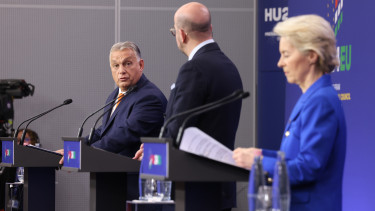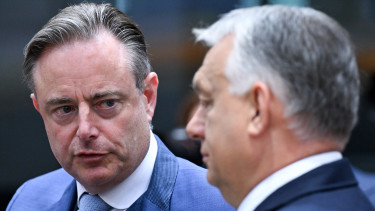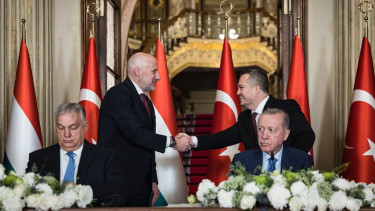EU creates EUR 25 billion fund to mitigate economic fallout of coronavirus outbreak

Von der Leyen stressed that "first and foremost, we must act at the macro-economic level."
We will use all the tools at our disposal to make sure the European economy weathers this storm.
She noted that this requires coordination between Member States, the Commission and the ECB, expressing her comfort that leaders have called for such a coordinated strategy.
Von der Leyen said she is working on the following measures to support member states in their efforts:
- The Commission will make sure that state aid can flow to companies that need it;
- Secondly, the Commission will make full use of the flexibility which exists in the Stability and Growth Pact;
The President will present concrete ideas to the Eurogroup on Monday.
Von der Leyen said the Commission is "working flat out on both fronts."
- The European Commission will, in a daily phone conference with the Health Ministers and the Ministers of Internal Affairs, coordinate the necessary measures.
- Secondly, the Commission will assemble a team of epidemiologists and virologists from different Member States to give us guidelines on the European level.
- The European Commission is now taking stock of the available protective equipment and respiratory devices as well as their production and distribution capacity. Those are crucial for the entire health sector.
- On research and development, the EC will reinforce the European initiative to fund targeted research on the Coronavirus.
- The EC has mobilised EUR 140 million of public and private funding for promising research on vaccines, diagnosis and treatment.
Von der Leyen also said she will bring forward a “Corona Response Investment Initiative” directed at
- the health care systems,
- SMEs,
- labour markets
- and other vulnerable parts of our economies.
The investment will be sizable and reach EUR 25 billion quickly.
To realise this, the President will propose to Council and Parliament this week to release EUR 7.5 billion of investment liquidity. She said she will set up a Task Force to work with Member States to ensure that the money starts flowing in the coming weeks.
How will the initiative work?
In order to quickly direct €25 billion of European public investment to deal with the fallout of the Coronavirus crisis, the Commission will propose to relinquish this year its obligation to request refunding of unspent pre-financing for European structural and investment funds currently held by Member States.
The Member States will be required to use these amounts to speed up their investments under the structural funds. They will use this for the national co-financing they would normally have had to provide themselves in order to receive the next tranches of their structural fund envelopes. In view of the average co-financing rates across Member States, the EUR 7.5 billion will be able to trigger the release and use of some EUR 17.5 - EUR 18 billion of structural funding across the EU.
This proposal can be implemented through a modification of the common provision regulation for the structural funds. The Commission will make this proposal to Council and Parliament this week. The national operational programmes would then be adapted, where necessary, to channel the funding towards areas such as short-term work measures, the health sector, labour market measures, and sectors particularly affected in the current circumstances.
At the press conference following the meeting, Charles Michel, President of the European Council, presented four priorities that had been identified by the leaders:
- limiting the spread of the virus
- provision of medical equipment with a particular attention to be given to masks and respirators
- promoting research, including for a vaccine
- tackling socio-economic consequences
Cover photo: John Hopkins University












